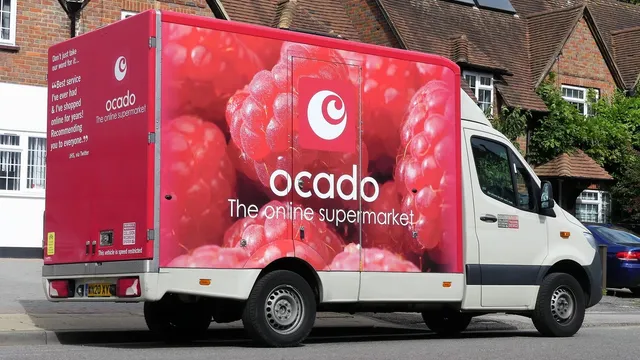
Ocado faces crisis with massive job cuts and emerging losses
2025-02-27 15:15- Ocado disclosed plans to cut over 500 research and development roles as part of cost reduction efforts.
- The company reported narrower losses in its annual results, although it still recorded significant pre-tax losses.
- Investors reacted negatively to the outlook for 2025 with a drop in share price, prompting concerns over the company's future.
Express your sentiment!
Insights
In the UK, Ocado has announced plans to reduce its research and development workforce due to ongoing financial losses and a challenging outlook for its technology solutions business. The company reported significant pre-tax losses of £374.5 million for the year ending December 1, 2024, although these losses narrowed from £403.2 million in the previous year. Ocado's shares dropped significantly, by as much as 18 percent, in the wake of these announcements, reflecting investor concern over the company's future performance. The firm operates a unique business model that combines an online grocery retail system with automated warehouse technology, yet it has struggled to achieve profitability. Despite generating revenues of £3.2 billion, up 14.1 percent year-on-year, the company's outlook for 2025 indicated lower growth expectations than investors had hoped for, particularly in the technology solutions sector. This prompted a drastic decision to cut over 500 jobs, focusing on Research and Development where they have already invested more than £800 million over the last four years. Challenges have been compounded by complexities within Ocado's joint venture with Marks & Spencer, where negotiations are ongoing regarding a significant payment due under their agreement. While Ocado continues to express confidence in its market position and discusses the possibility of negotiating a satisfactory settlement with Marks & Spencer, it's clear that the performance targets for this venture have not been met. As a result, the company's strategy includes trimming costs through workforce reductions as they aim to become cash flow positive by 2026. Overall, while there have been signs of improved performance in some segments of the business, Ocado's current trajectory raises questions about its ability to sustain growth against competitive pressures and generate shareholder value. Investors remain on edge as the outlook dims and job cuts signal deeper operational adjustments may be necessary to navigate these turbulent times.
Contexts
The joint venture between Marks & Spencer (M&S) and Ocado is a strategic partnership aimed at leveraging each company's strengths in the retail and e-commerce sectors. Marks & Spencer, a longstanding British retailer known for its high-quality food offerings and clothing, has sought to enhance its online presence and delivery capabilities through this collaboration. Meanwhile, Ocado, a leading online grocery platform, brings to the partnership its advanced technology infrastructure and logistics expertise. This synergy is designed to improve customer experience, streamline operations, and increase market share in the increasingly competitive grocery sector, particularly in the wake of growing consumer demand for online shopping solutions. The partnership commenced with M&S leveraging Ocado's online platform to sell its products to customers across the UK. This development presented an opportunity for M&S to tap into Ocado's established customer base, enhancing its reach without the overhead associated with maintaining its own extensive delivery network. Additionally, this venture has allowed M&S to offer a wider selection of its food products, appealing to both existing customers and new ones attracted by the ease and convenience of online grocery shopping. As the joint venture has evolved, both companies have reported positive trends in sales growth, highlighting the successful integration of M&S's product lines into Ocado's platform. This growth is indicative of changing consumer behavior towards online shopping, particularly accelerated during the COVID-19 pandemic, where many customers have turned to digital platforms for their grocery needs. The collaboration has also been beneficial in marketing, as the M&S brand is widely recognized for quality and value, which resonates with Ocado's customer demographics. This relationship has bolstered M&S's online visibility and reputation. Moving forward, the joint venture appears to be focused on further enhancing technology integration and expanding product offerings. Increasing investments in supply chain logistics and the adoption of innovative technologies will be crucial to maintaining competitive advantages in the ever-evolving retail landscape. It remains to be seen how each partner will adapt to future challenges, but the M&S and Ocado joint venture stands as a significant example of how traditional retail can successfully adapt through collaboration and technological advancement.